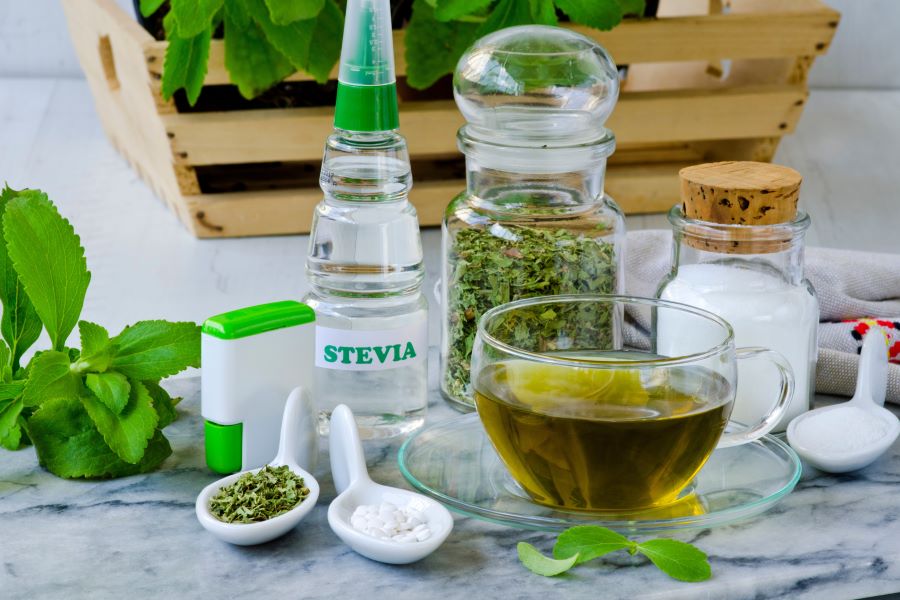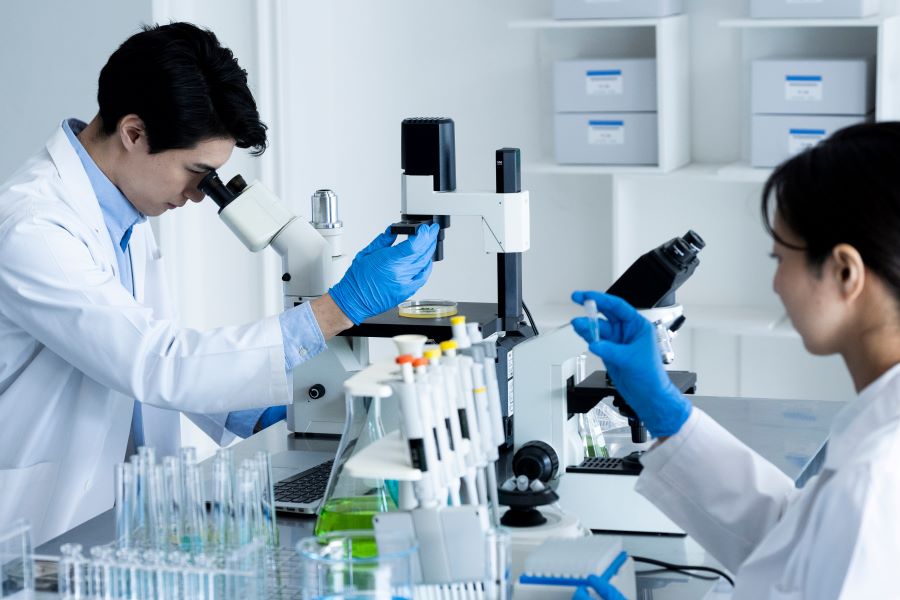Stevia leaf extract fermented with bacteria isolated from banana leaves may kill off pancreatic cancer cells without harming healthy kidney cells, according to scientists at Hiroshima University, Japan. This cancer is a highly malignant tumor with a poor prognosis.
The researchers note that the fermented stevia leaf extract showed “significantly enhanced” antioxidant activities and cytotoxicity — the ability to damage or kill cells — against pancreatic cancer cells in the lab. Additional testing demonstrated that the extract effectively inhibited the proliferation and migration of these cancer cells.
“Globally, the incidence and mortality rates of pancreatic cancer continue to rise, with a five-year survival rate of less than 10%,” says co-author Narandalai Danshiitsoodol, associate professor in the university’s Department of Probiotic Science for Preventive Medicine.
“Pancreatic cancer is highly invasive and prone to metastasis, showing significant resistance to existing treatments, such as surgery, radiotherapy, and chemotherapy. As such, there is an urgent need to identify new and effective anticancer compounds, particularly those derived from medicinal plants.”
Power of fermentation
Earlier studies by different researchers indicated stevia leaf extract’s anticancer potential. However, isolating and applying the specific bioactive components that protect against cancer cells is challenging. Fermenting the extract with bacteria can structurally change the extract and produce bioactive metabolites that can impact living organisms.
“To enhance the pharmacological efficacy of natural plant extracts, microbial biotransformation has emerged as an effective strategy,” says corresponding author Masanori Sugiyama, professor in the Department of Probiotic Science for Preventive Medicine.
His lab has isolated and validated the health benefits of over 1,300 lactic acid bacteria (LAB) strains from various fruits, vegetables, flowers, and medicinal plants.
“In this study, we aimed to compare LAB-fermented and non-fermented extracts to identify key compounds that enhance bioactivity, ultimately contributing to the efficacy of herbal medicine in cancer prevention and therapy.”
The researchers note that fermentation enhanced the extract’s bioactivity, as it showed greater cytotoxicity than non-fermented extracts.The researchers fermented extracts using the plant-derived Lactobacillus plantarum SN13T strain for their study, which was published in the International Journal of Molecular Sciences. They compared the fermented extract’s effects on pancreatic cancer cells and non-cancerous human embryonic kidney cells (HEK-293) to those of non-fermented stevia leaf extract in the lab.
“Our findings indicate that L. plantarum SN13T demonstrates significantly greater cytotoxicity than the non-fermented extract at equivalent concentrations, suggesting that the fermentation process enhances the bioactivity of the extract,” says Sugiyama. “Notably, L. plantarum SN13T exhibited lower toxicity toward the HEK-293 cells, with minimal inhibition observed even at the highest concentration tested.”
Active anticancer compound
In additional analyses, the researchers identified chlorogenic acid methyl ester (CAME) as the active anticancer compound in the solution. Their findings indicate that CAME has cytotoxic effects on the cancer cells by inhibiting cell proliferation and migration, stopping the cell cycle, and regulating gene expression related to apoptosis — cell death.
When the extract is fermented, its concentration of chlorogenic acid drops sixfold. The researchers note this indicates a microbial transformation.
“This microbial transformation was likely due to specific enzymes in the bacteria strain used,” notes Danshiitsoodol. “Our data demonstrate that CAME exhibits stronger toxicity to cells and pro-apoptotic effects — which encourage cell death — on pancreatic cancer cells compared to chlorogenic acid alone.”
The team plans to examine the extract’s effects in a mouse model to determine the effectiveness of various dosages across a whole-body system.
 Stevia leaf extract, as a natural, no-calorie sweetener, is used to meet consumer demand for reduced-sugar food and drink options.“The present study has substantially enhanced our understanding of the mechanism of action of the L. plantarum SN13T strain in the fermentation of herbal extracts, while also offering a valuable research perspective on the potential application of probiotics as natural anti-tumor agents,” says Danshiitsoodol.
Stevia leaf extract, as a natural, no-calorie sweetener, is used to meet consumer demand for reduced-sugar food and drink options.“The present study has substantially enhanced our understanding of the mechanism of action of the L. plantarum SN13T strain in the fermentation of herbal extracts, while also offering a valuable research perspective on the potential application of probiotics as natural anti-tumor agents,” says Danshiitsoodol.
Sugar reduction trend
Consumers increasingly seek healthier, low-calorie food options with great taste. Stevia leaf extract, a natural, no-calorie sweetener that is sweeter than sugar, enables food manufacturers to meet these consumer demands.
Earlier this month, Nutrition Insight discussed the rise of sugar reduction with the CEO of PureCircle, Ingredion’s portfolio for stevia flavor modifiers and sweeteners.
Nate Yates told us that stevia will “continue to play a major role” in the space, pointing to Ingredion’s proprietary research that North American consumers are more accepting of stevia than artificial sweeteners.
Meanwhile, research by stevia supplier Cargill indicated that stevia-sweetened beverages and water did not impact blood glucose levels, while beverages with sucrose, glucose, and maltodextrin did. Participants consuming the stevia beverages also consumed fewer calories at a subsequent meal.
